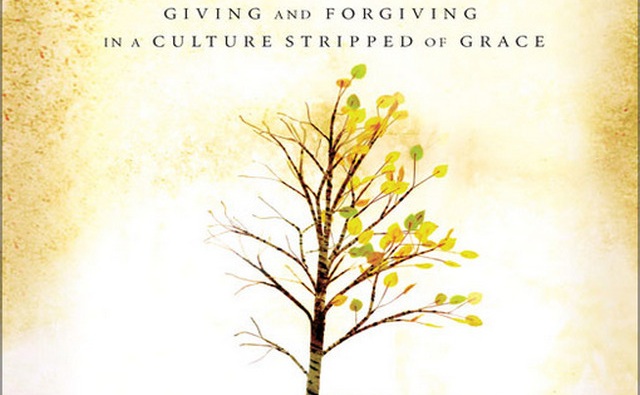
I realize that these quotes from Volf over the last few days have been life changing for you, but it needs to come to and end. But before we wrap things up, one last lengthy quotation on the need for repentance on the part of the victim. That’s right, the victim. I know it seems beyond strange to suggest that victims have a need for repentance, but that is because we have a compulsive need to see everything in terms of all-or-nothing. And by “we,” I mean church people. Or maybe Americans, in general. Honestly, don’t most human beings suffer from this inability to see things in shades of gray?
A person is all good or all bad. A marriage failure is all the husband’s fault or all the wife’s fault. Problems in education are all the fault of the teachers, or the students, or their families, or the system. Someone’s view of God is either entirely orthodox or it is heretical. For whatever reason, we are drawn to the simplicity of seeing things in terms of either-or.
However, it doesn’t take much sustained reflection on our part to realize that life is more complicated than that. Children misbehave not only as a result of their own inherent sinfulness, but also because of the dysfunctionality of their family, or the pressures of their peer-group, or even as a means of exacting justice – no matter how skewed their ideas of that might be. What is true for children is true for adults, and organizations, and tribes, and countries. Despite our desire to see things in terms of absolutes, our better selves know that no one person or country can bear all the weight of this all-or-nothing way of thinking. We all behave badly for different reasons and in different ways.
I’m not sure how I got off track here. Let’s get back to the matter at hand, namely Volf on victims and perpetrators…
Jesus called to repentance not simply these who falsely pronounced sinful what was innocent and sinned against their victims, but the victims of oppression themselves. It will not do to divide Jesus’ listeners neatly into two groups and claim that for the oppressed repentance means new hope whereas for the oppressors it means radical change. Nothing suggests such a categorizing of people in Jesus’ ministry, though different people ought to repent of different kinds of sins. The truly revolutionary character of Jesus’ proclamation lies precisely in the connection between the hope he gives to the oppressed and the radical change he requires of them. Though some sins have been imputed to them, other sins of theirs were real; though they suffered at the sinful hands others, they also committed sins of their own. It is above all to them that he offers divine forgiveness.
The most seminal impact of enmity … consists in transforming the violent practices of the dominant into the dominant practices … envy and enmity keep the disprivileged and weak chained to the dominant order – even when they succeed in toppling it … repentance creates a haven of God’s new world in the midst of the old and so makes the transformation of the old possible.
Victims need to repent of the fact that all too often they mimic the behavior of the oppressors, let themselves be shaped in the mirror image of the enemy. They need to repent also of the desire to excuse their own reactive behavior either by claiming that they are not responsible for it or that such reactions are a necessary condition of liberation. Without repentance for these sins, the full human dignity of victims will not be restored and needed social change will not take place … If victims do not repent today they will become perpetrators tomorrow who, in their self-deceit, will seek to exculpate their misdeeds on account of their own victimization. (from Exclusion and Embrace, emphasis his).
So I’m pretty much done subjecting you to Volf…
For now.














